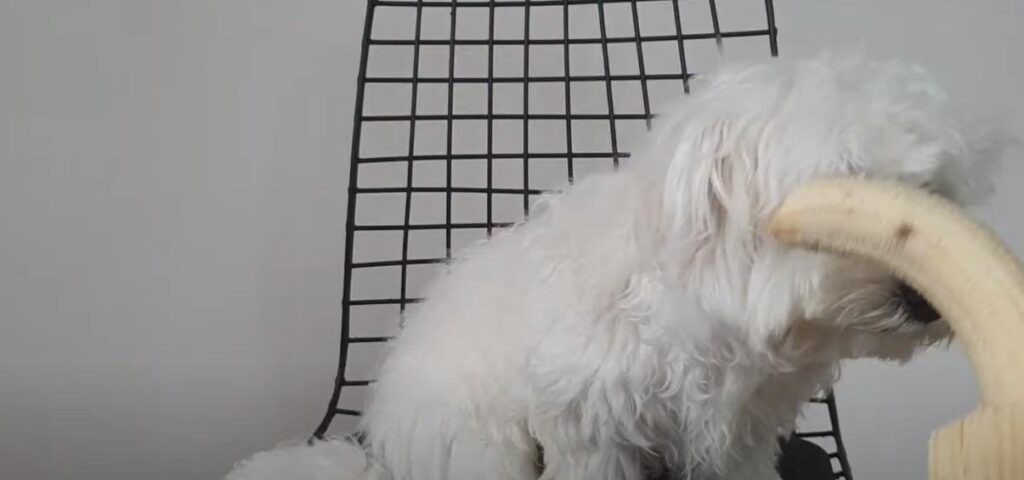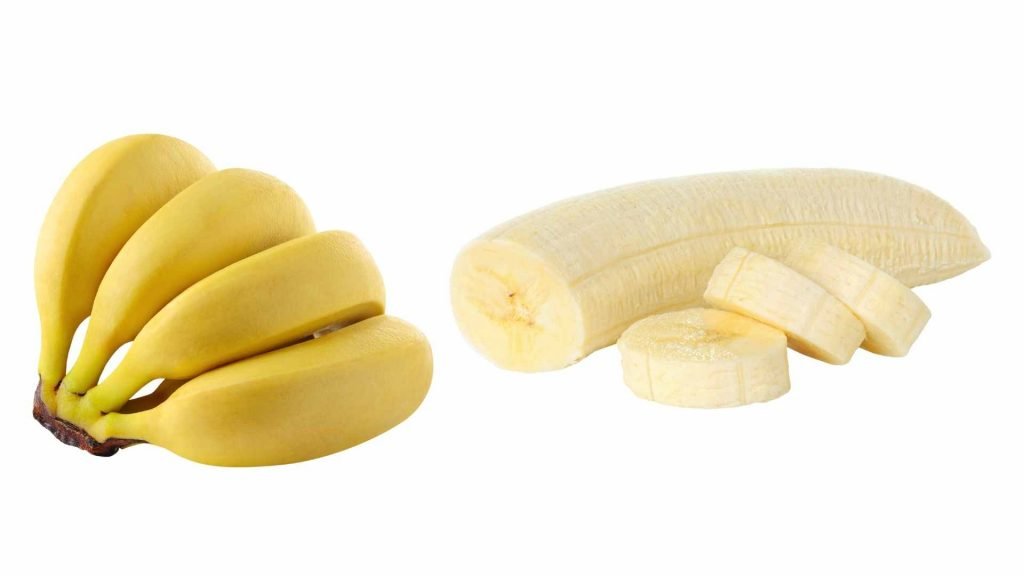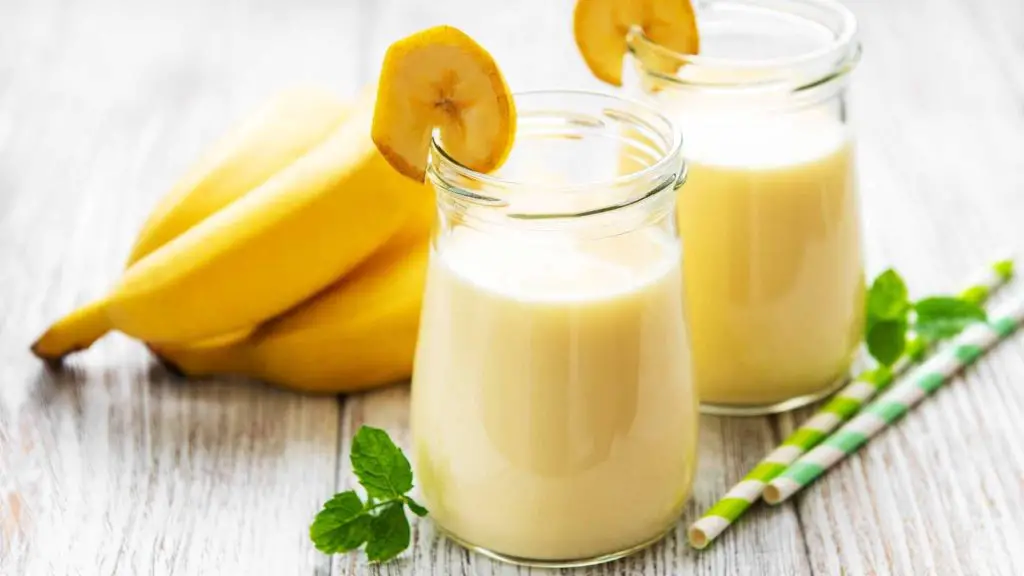Can Maltese Eat Bananas? [Feeding Guide]
Dogs love to eat bananas! Maltese certainly seem to enjoy their occasional meal of this delicious food item but do you ever wonder if there are any risks associated with feeding your pup an indulgent snack on occasion?
Bananas are a great low-calorie treat for dogs. They’re high in potassium, biotin, fiber, copper, and more that can help keep your pup healthy! However, a banana should not be given daily as that would be too much sugar content leading to weight gain or other health issues. Instead, this fruit is best given as an occasional celebratory dessert on special occasions only.
In this blog post, we’ll cover some of the more interesting facts about this yummy, yet complicated treat!

Nutritional Benefits of Bananas
Did you know bananas are loaded with potassium, vitamin B6, copper, and manganese? The banana is a real powerhouse of nutrients that can benefit many areas of your pup’s health.
Potassium is an essential mineral that helps keep your dog’s heart rate steady. Potassium also aids in proper muscle function, nerve transmission, and fluid balance. Bananas are an excellent source of potassium-containing around 450-460mg potassium per 100 grams!
Manganese benefits include healthy bones and joints due to their role in strengthening connective tissues. Additionally, this essential mineral is necessary for metabolism regulation, enzyme production, bone formation, and the electron transport chain!
Vitamin B6 is another important nutrient found in bananas. It helps your pup utilize carbohydrates better by making them more easily digested.
This vitamin also works with over 100 different enzymes that are essential in the breakdown of proteins to amino acids. More amino acids mean more protein which is necessary for your dog’s muscles, organs, bones, and skin!
Vitamin C is another awesome benefit found in bananas. It is needed for collagen production and the manufacturing of other essential compounds such as neurotransmitters to help support your pup’s immune system.
After all, a healthy immune system makes for a happy, vibrant dog!
Copper helps to store iron in the body which helps maintain healthy red blood cells. Copper also plays a role in metabolizing proteins, carbohydrates, and lipids!
Additionally, the low-calorie treat comes packed with fiber to promote healthy digestion. Fiber helps stave off weight gain by promoting satiety without the added calories.

When Are Bananas Bad for Dogs?
Many vets warn against giving your Maltese bananas due to the fruit’s high sugar content. In addition, it is possible that a dog allergic to bananas or foods containing potassium may react negatively when fed this fruit.
It is best to check with your vet before feeding your pup the occasional banana as the effects on health can be wide-ranging. The high levels of potassium and lack of calcium can cause problems in dogs with kidney disease or other health conditions.
Bananas should also not be fed to dogs who are prone to eating compulsively as this fruit is so calorie-dense it could lead to weight gain and obesity.
Additionally, the sugar content of bananas when eaten in excess can lead to health problems such as obesity, diabetes, dental issues, and more.

Can Dog Eat Banana Peels?
As funny as it might be to watch your pup attempt to eat a banana peel, this is one of those times where it’s best to stick with the experience of having watched others do so!
In general, you should not feed your Maltese anything from a larger animal such as a banana peel. For example, cows have been known to eat bananas and their skin can be toxic for dogs.
While the fruit of the banana may be ok for your pup to eat, some veterinarians warn against feeding your canine companion the peel.
That’s because the peel contains an ingredient called phenylalanine which can be dangerous if digested in large amounts. This substance, while safe for us humans to eat, can be fatal when consumed by dogs!
The banana peel can also cause a blockage to your furry friend’s small stomach or intestines which could result in critical complications.
Additionally, the peel may be covered in pesticides or other chemicals used to ensure increased banana production. Make sure to thoroughly rinse off any pesticide residue before feeding your pup food that has been exposed to it!
How to Feed Your Maltese Bananas
As mentioned earlier, you should always consult with your veterinarian prior to feeding your Maltese any new foods.
Not only can introducing a new food have negative effects but also it is necessary for you to know the exact nutritional content of the fruit.
Bananas are high in sugars so they should not be fed to dogs who suffer from conditions such as diabetes.
You should also not feed your Maltese an excessive amount of bananas as they can lead to digestive issues such as constipation and diarrhea.
Of course, the number one way to ensure that your pup is safe when eating bananas is in moderation! Just like humans, it’s important for pets to eat a balanced variety of foods.
Serving Bananas To Your Maltese

Give your dog a piece of banana as an occasional treat to enjoy, and here are some other ways he can do so!
- Combine it with his food and mash it up.
- Blend it with a small amount of dog-safe peanut butter.
- Fill it into a Kong and freeze it.
- Freeze the entire banana before peeling and slicing it.
How much banana can I give my dog?
Maltese dogs are small, delicate breeds that require a specific diet to stay healthy and avoid gastrointestinal issues. While bananas are not harmful to Maltese dogs in moderation, it is important to be aware of how much banana your dog should eat based on their size.
Large Maltese dogs can eat one-half of a banana per day, while smaller Maltese dogs should only have two to three small pieces daily. If you’re feeding your dog bananas for the first time, monitor them for signs of allergies.
Are there any other foods that I should not feed my Maltese dog?
As a pet owner, it is important to be aware of the foods that are harmful to your dog. Avocados, cherries, chocolate, coffee, raisins and grapes, citrus fruits, cinnamon and coconut products can all be harmful to dogs. Dogs should not eat any food that contains cyanide or persin.
Avocados contain a toxin called persin which can cause gastrointestinal issues in dogs. Cherries contain cyanide which is poisonous to dogs (and humans). Chocolate contains caffeine and theobromine which can be toxic to dogs in large quantities.
Coffee also contains caffeine and should therefore be avoided. Raisins and grapes contain an unknown toxin which can lead to kidney failure in dogs. Citrus fruits such as lemons and limes contain citric acid which can irritate a dog’s stomach. Cinnamon can cause liver damage in dogs while coconut products may cause digestive upset or even vomiting/diarrhea.
In general, it is best to err on the side of caution when feeding your Maltese dog. If you are unsure about whether or not a certain food is safe for your dog, consult with your veterinarian before feeding it to them.
What should I do if my Maltese dog does not like bananas?
If your Maltese dog does not like bananas, there are a few things you can do to get them to eat them. First, cut the banana into small pieces and mix it with their regular food.
If that doesn’t work, try adding some peanut butter or honey to the banana to make it more appealing. You can also try freezing the banana slices so they are more like a treat.
What human food can Maltese dogs eat?
Maltese dogs can safely eat a variety of human foods, including carrots, apples, white rice, dairy products, fish, chicken, and peanut butter. As long as the food is prepared properly and does not contain any harmful ingredients, your Maltese should be able to enjoy it without any problems.
Carrots are an excellent source of vitamins and minerals for dogs, and they can help to keep their teeth healthy. Apples provide many important vitamins for dogs including vitamins A and C.
White rice is a good source of energy for dogs and is easy on their digestive system. Dairy products such as milk or cheese can also be given to Maltese dogs in moderation.
Fish is a good source of protein for dogs and can be cooked in a variety of ways that make it safe for them to eat.
Chicken is another protein-rich food that is safe for Maltese dogs to eat. Peanut butter is a popular treat for dogs and contains healthy fats that can benefit their coat and skin.
Conclusion
Maltese can eat bananas, but because of their high sugar content, you should only do so occasionally and in moderation. If your Maltese is prone to eating compulsively, bananas probably aren’t the best choice as they are so calorie-dense.
Make sure to consult with your vet before feeding your pup bananas and check the nutritional content to ensure you’re not giving him too many sugars. Also, be sure to wash any pesticides off the skin before feeding it to your pup and avoid feeding him a banana peel.

